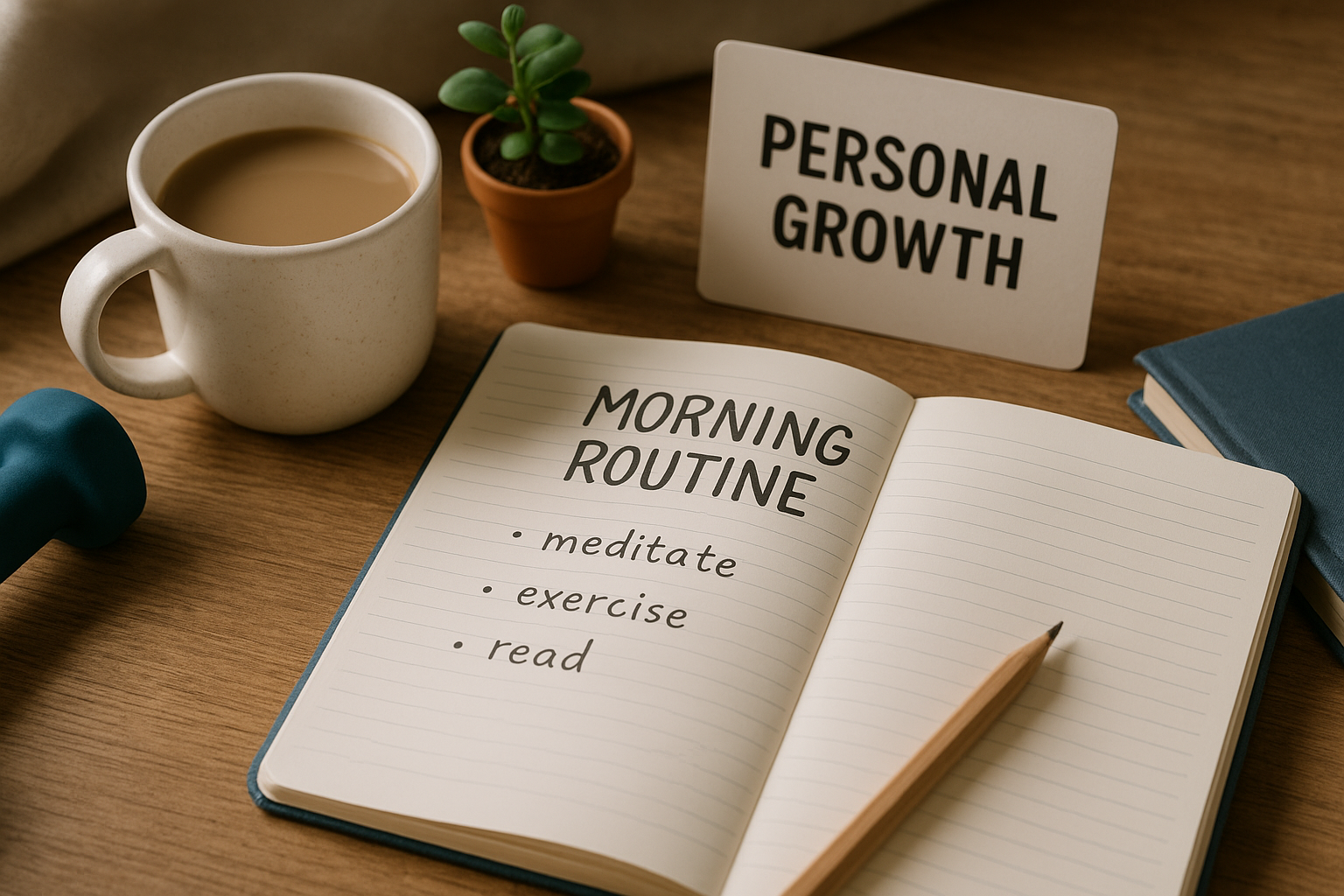How you start your morning sets the tone for your entire day. A focused, intentional routine in the early hours can help you feel calm, energized, and ready to make progress toward your personal goals.
In this article, you’ll learn how to build a morning routine that supports your mental clarity, emotional balance, and personal development—even if you’re not a “morning person.”
Why Morning Routines Matter
A strong morning routine offers many benefits:
- Boosts productivity
- Reduces decision fatigue
- Enhances mood and energy
- Creates structure and stability
- Encourages healthy habits
- Builds momentum for the rest of the day
By creating time for yourself before the world demands your attention, you’re putting your growth first.
Step 1: Decide What You Want Your Mornings to Do for You
Not every routine should look the same. Start by asking:
- Do I want more focus?
- Do I want more peace?
- Do I want to improve my mindset or physical health?
Choose 1–2 goals, and build your routine around them.
Step 2: Wake Up With Intention
You don’t have to wake up at 5 a.m. What matters is how you wake up.
Tips:
- Avoid checking your phone immediately
- Sit up and take three deep breaths
- Stretch your arms and legs before standing
- Say a quiet affirmation like, “Today is a fresh start”
These small actions signal your brain to shift into clarity and control.
Step 3: Hydrate and Move
After 6–8 hours of sleep, your body is dehydrated and stiff. Begin by:
- Drinking a full glass of water
- Doing light movement: stretching, yoga, a quick walk, or a short workout
Physical activity—even 5–10 minutes—helps release feel-good chemicals like dopamine and serotonin, giving you energy and focus.
Step 4: Practice Mental Clarity
Spend a few minutes on a mental habit that supports personal growth:
- Journaling: Write your thoughts, gratitude, or goals
- Meditation: Use an app like Calm or Insight Timer
- Reading: Choose a few pages of something uplifting or educational
- Breathwork: Focus on slow, deep breathing to center your mind
This helps you start the day from a grounded, mindful place.
Step 5: Review Your Goals or Priorities
A quick review of your day helps reduce stress and increase motivation.
Try:
- Writing down your top 1–3 priorities
- Reviewing your long-term goals or affirmations
- Visualizing a successful day in your mind
This anchors you in purpose before distractions appear.
Step 6: Avoid Overloading Your Routine
Don’t try to do everything in the morning. A 15–30 minute routine is more than enough to make an impact.
Start with 2 or 3 practices that matter to you. As they become habits, you can build from there.
Simplicity is sustainable.
Example Morning Routine (Flexible Format)
Here’s a sample 30-minute personal growth routine:
- 0–5 min: Wake up, breathe deeply, drink water
- 5–15 min: Light stretching or short walk
- 15–25 min: Journal or meditate
- 25–30 min: Review goals or set intentions
Want to expand it? Add time for reading, exercise, or a mindful breakfast.
Short on time? Compress it into 10 minutes. Consistency matters more than length.
Step 7: Protect Your Routine from Disruptions
Mornings can easily be hijacked by phone alerts, social media, or other people’s needs.
To protect your time:
- Keep your phone in another room or on airplane mode
- Wake up 15–30 minutes earlier than usual if needed
- Let loved ones know that this time is for your well-being
Protecting your peace is not selfish—it’s essential.
Your Morning, Your Foundation
You don’t need a perfect morning—you need a purposeful one. A few intentional actions can shift your mindset, build momentum, and move you closer to the person you’re becoming.
Start here:
- Choose 2 habits you’d like to add to your morning
- Practice them daily for 7 days
- Adjust and refine as needed
You’re not just starting the day—you’re building your future, one morning at a time.
